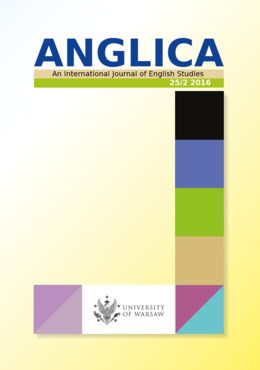The Names of Watercourses and Natural Water Reservoirs in Middle English
The Names of Watercourses and Natural Water
Reservoirs in Middle English
Author(s): Anna WrzesińskaSubject(s): Language studies, Language and Literature Studies, Applied Linguistics
Published by: Instytut Anglistyki Uniwersytetu Warszawskiego
Keywords: watercourse; water reservoir; rever, sea; ocean; lake
Summary/Abstract: Geographical words referring to water, such as river, stream sea or lake, have been used in language since the earliest. As water is considered essential for life in general, the names of water reservoirs and watercourses became popular and frequently used items in all languages. The present study is focused on the English names of natural water reservoirs(sea, lake) and watercourses (river, stream) and their regional spread in the 12th–15th centuries. The Old English names of watercourses and natural water reservoirs, sӕ, flodand ea, either survived in Middle English in a modified form or were (rarely) replaced by loanwords as the effect of the Norman Conquest of England in the 11th century. The research is concentrated on texts selected from the Innsbruck Corpus of Middle English Prose (Marcus 2008), with some material coming from the OED and MED. The analysis will show the extent of the loss of the original Anglo-Saxon words or their spread, frequently with a modified meaning. The analysis will also include the statistics of the terms in question in prose texts representing the chief dialects of the period. As regards the method, the present author makes use of the traditional semantic theories (e.g. Lyons 1977) and the prototype theory (e.g. Geeraerts 1997).
Journal: ANGLICA - An International Journal of English Studies
- Issue Year: 25/2016
- Issue No: 2
- Page Range: 101-115
- Page Count: 15
- Language: English

